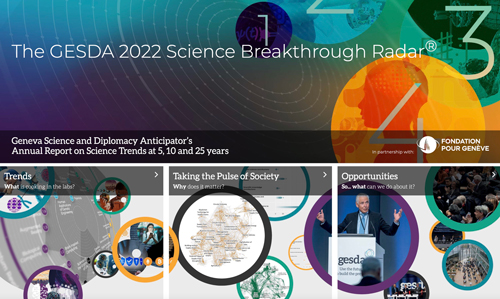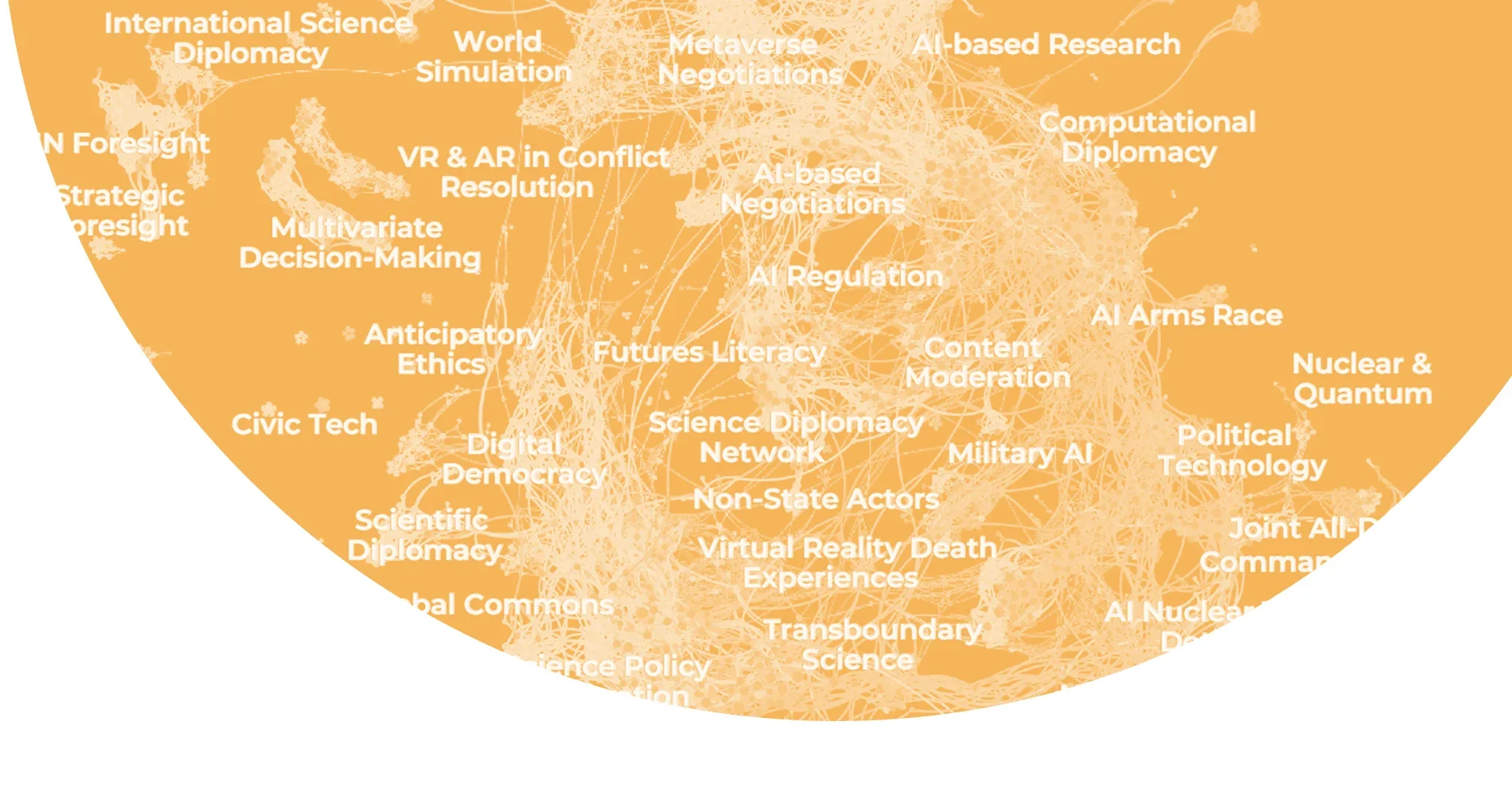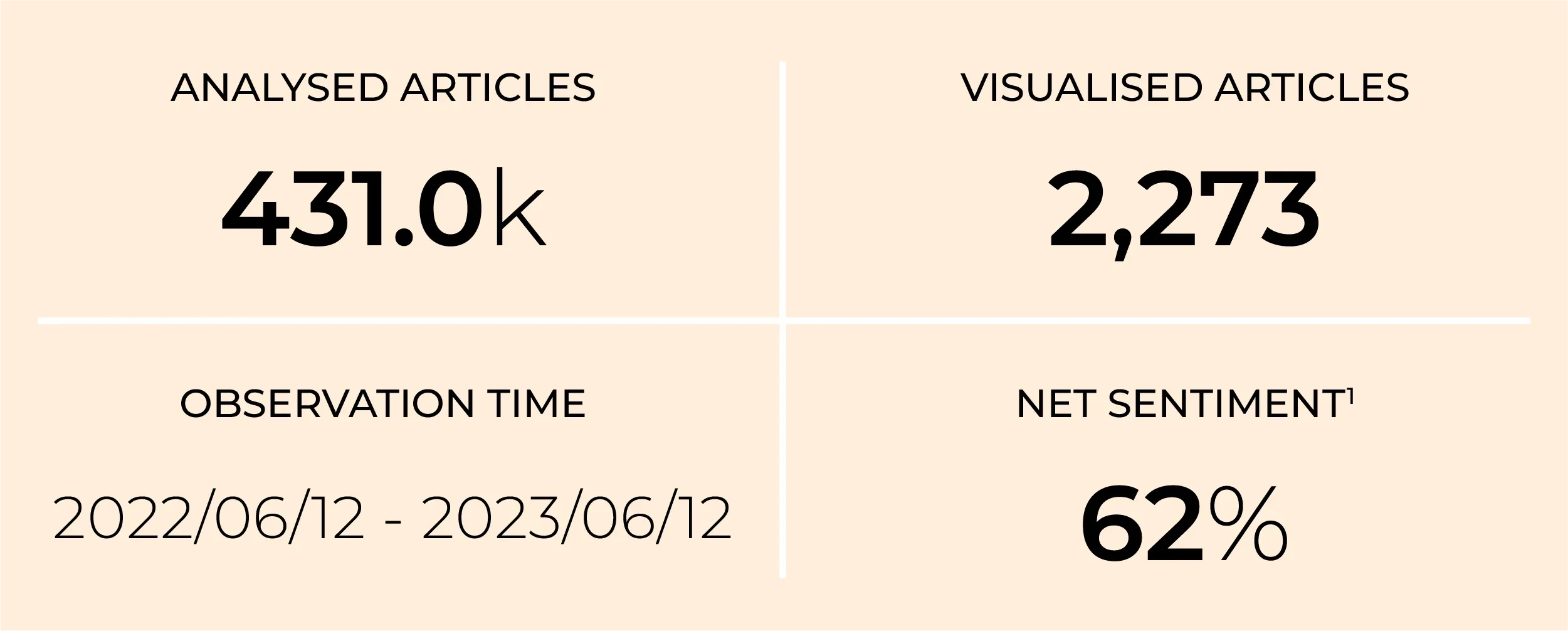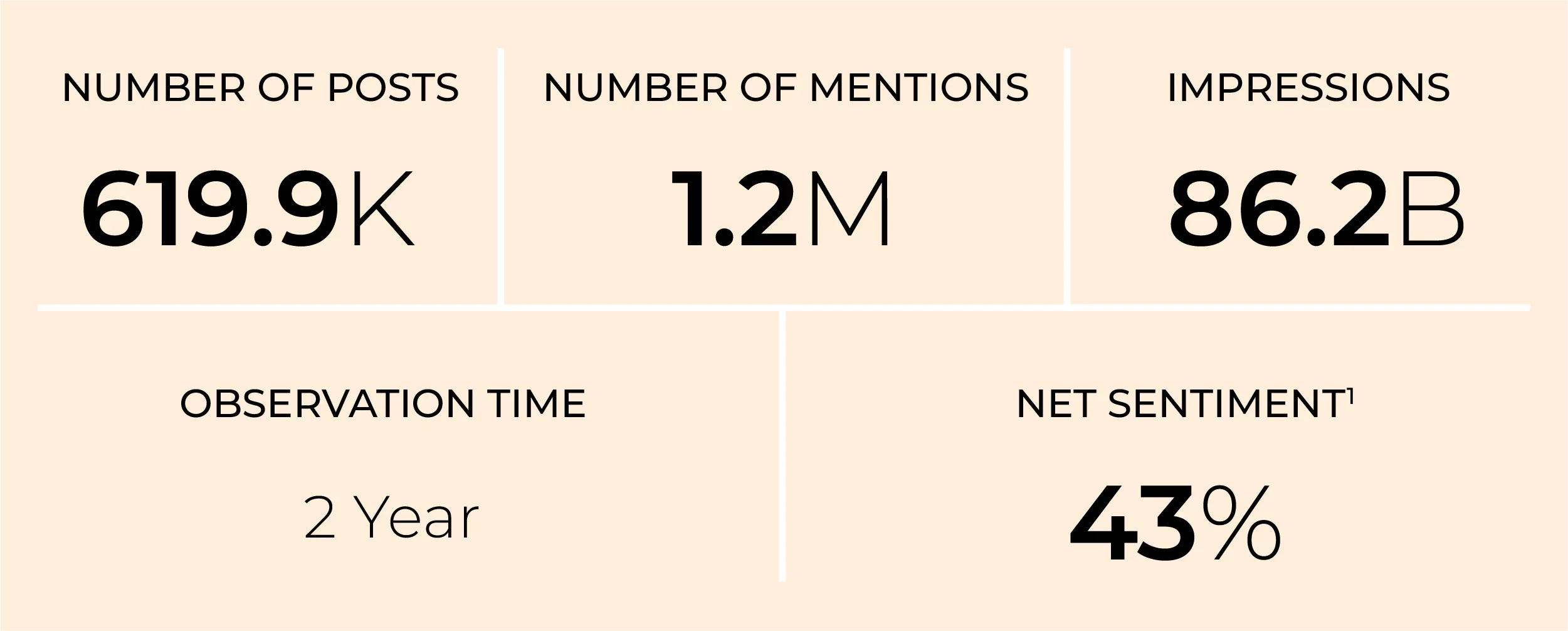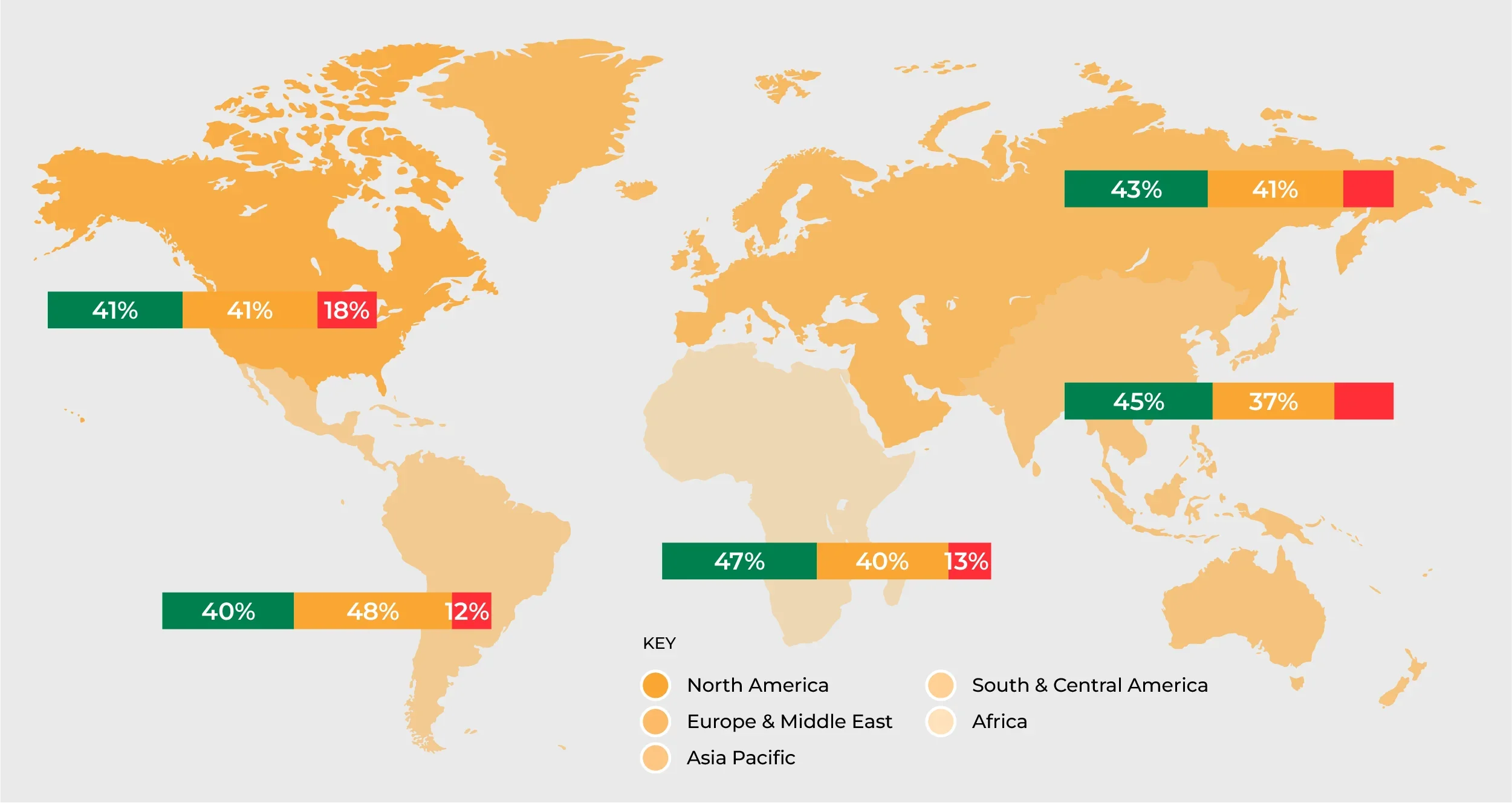Mainstream media
Over the past year, an exhaustive collection of 431 thousand pieces spanning news, blogs, and scientific journals unveiled a 62 per cent net positive sentiment within the discourse on Science and Diplomacy.Social media
Over a 2-year span, 619.6K unique social media posts on platforms such as Twitter, Reddit, and other text-centric channels were screened. Subjects ranged from computational diplomacy, negotiation engineering, predictive peacekeeping, and cooperation modelling, to topics like privatisation of governance and content moderation, contributing to an overall net positive sentiment of 43 per cent.Social media: emerging hot topics and discussions
Inclusive global diplomacy
There is a growing consensus in social media discussions: while predictive models for responsibly preventing conflict can provide essential insights for pre-emptive action, it is crucial to approach them ethically, considering potential data misuse, privacy rights violations, and algorithmic bias. Social media discussions spotlight prominent academic voices and civil society groups as valuable contributors to achieving global consensus on issues such as climate change and cybersecurity, reflecting a transformation towards more inclusive and cooperative international diplomacy.</sup> However, concerns about these actors undermining state sovereignty or being manipulated for destructive purposes are also prevalent.
Unity for sustainability
Social media discussions on the sustainable management of global commons such as the oceans, the internet and outer space call for universal norms to ensure internet security, non-militarisation of outer space, and marine biodiversity conservation. Amidst ongoing geopolitical shifts and climate crises, the need for proactive approaches towards sustainable development and climate change mitigation is eagerly debated. The discourse also underscores the importance of multilateral diplomacy in addressing socio-economic disparities and collective responsibilities, encouraging a unified approach to global sustainability.
Free speech, censorship and misinformation
Online discussions on censorship circumvention and content moderation reveal a tension between the protections for free speech and the necessity to prevent harm and misinformation. Advocates propose concepts like social circuit breakers and improved moderation practices. Proponents of free speech express concerns regarding potential misuse of content moderation to suppress dissenting voices, demanding legal safeguards and transparency. In restrictive societies, circumventing censorship via technology is viewed as essential for preserving freedom of speech.
AI and dual-use concerns
Discussions on social media about AI often revolve around how technologies can be regulated to prevent misuse in both military and civilian contexts. Representing diverse standpoints, people are increasingly interrogating the ethical ramifications of dual-use AI technologies and the need for comprehensive regulatory strategies to curb their potential misuse. Highlighted is the importance of human control in the use of AI, the prevention of premature technology usage, and the necessity for an inclusive, multilateral perspective in formulating AI governance norms.
Sentiment towards Science and Diplomacy across the world
- South Africa is the primary hub within Africa for social media discussions intersecting science and diplomacy.
- Central and South American discourse is predominantly within Uruguay, French Guiana and Costa Rica.
- The US maintains a leading role with 56 per cent of global posts on the science diplomacy interface.
- The sentiment analysis of global posts discussing the intersection of science and diplomacy reveals a relatively even distribution across various regions. This uniformity suggests that the impact of scientific advancements on diplomacy and policymaking is a topic of equal interest worldwide, cutting across regional and cultural boundaries.
How is sentiment changing?
Mainstream media coverage has increased In 2022, 358,200 media articles were published relating to Science and Diplomacy, increasing to 431,000 articles by 2023. AI’s impact on nuclear disarmament and threat detection, as well as AI and dispute resolution, have shown the greatest increase in media popularity during this time, while coverage of predictive peacekeeping, concerns around dual-use technology and multistakeholder technology diplomacy have decreased.
Social media reveals changing sentiments and demographic engagement While overall popularity and engagement concerning science and diplomacy have been on the rise, Science-based Diplomacy and related keywords have experienced a slight decline. Contrarily, AI-based and VR-augmented negotiation in conflicts have tripled their annual post mentions, showcasing a stark shift in public interest and engagement towards these technologically advanced negotiation methods.
A sentiment analysis of the posts on science and diplomacy-related topics, including metaverse, augmented reality, and AI-aided conflict resolution, uncovers a slight upsurge in negativity between 2022 and 2023.
Emerging Topics
Associated Topics
Misperceptions, Meta-perceptions and Conflict
Understanding the Reality of Multilateral Relations with Computational Diplomacy